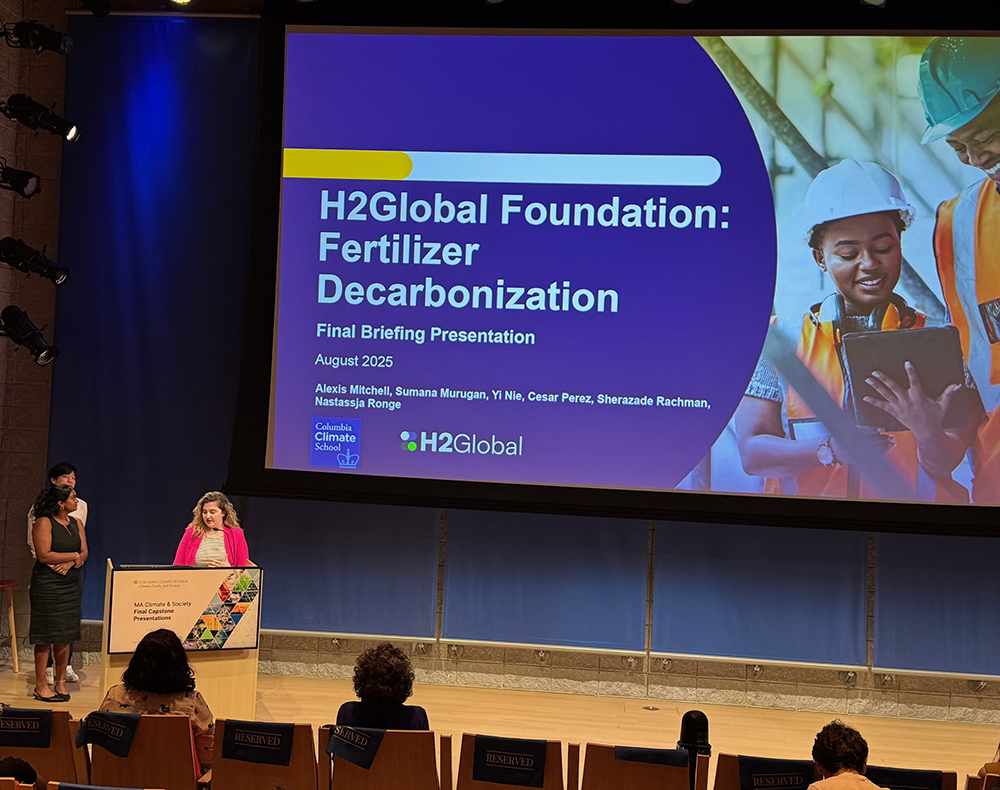
"The summer capstone project is a chance for Columbia Climate School's Climate and Society students to put academics into action. After a year spent studying subjects like climate mitigation, adaptation and justice, students partner with an organization-this year's participants included the NYC Department of Health, the National Institute of Urban Affairs, Capgemini, H2Global, the Climate Imaginarium and others-to tackle critical climate challenges in the real world."
"In 2017, NYC's Be a Buddy program was designed to mitigate the effects of extreme heat and protect residents against the worst impacts of rising temperatures caused by climate change. This past summer, students conducted interviews, surveys, and reviewed a range of data points to understand the health impacts of extreme heat in the South Bronx, central Brooklyn and northern Manhattan. Students also provided insights and recommendations to support the future development and growth of this program."
"This capstone compared two cities in India on their opportunities for investments in the circular economy and waste management. One of the cities they compared was advanced in their waste segregation and circular program. The other city was in its infancy, with low use of circular waste management solutions. Students explored each city's culture, along with opportunities for separating waste, reducing CO2 emissions and achieving cost savings. This research was presented as a potential framework for evaluating waste management programs worldwide."
Columbia Climate School Climate and Society students completed summer capstones partnering with organizations to address real-world climate challenges. Projects addressed health, the arts, policy, climate finance and urban resilience. One team evaluated NYC's Be a Buddy program, using interviews, surveys and data review to assess extreme heat impacts in the South Bronx, central Brooklyn and northern Manhattan and to provide recommendations for program growth. Another team compared two Indian cities' circular economy and waste management capacities, analyzing cultural factors, waste separation opportunities, CO2 reduction potential and cost savings and proposing a framework for evaluating programs globally.
Read at State of the Planet
Unable to calculate read time
Collection
[
|
...
]